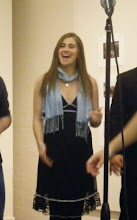"I meet many people, both at home and abroad, who somehow believe they aren't good enough to read poetry. Often enough that's how they'll phrase it, meaning they don't believe they're sufficiently intelligent to read poetry.
I find this profoundly sad, yet I think I know why they've come to such a conclusion. With some older folk it's because a teacher in childhood days, someone who didn't enjoy verse him or herself, took a mallet to hammer rhyming verse into pupil's heads. Little wonder they managed to turn their charges off poetry for ever.
But more often than not it's because these individuals have read the kind of contemporary poems that are printed in the top literary journals. They've turned the pages again and again, feeling they should have had at least a couple of degrees and a doctorate to understand what's being said.
I feel sadness and anger when I encounter such stories, and I do so on a regular basis. But I understand precisely what they are feeling, because as often as not my response is no different when I read such poetry. It comes across to me as similar to many of the cartoons that used to be published in the pages of Punch; bewilderingly obscure to leave the reader feeling foolish and the writer superior.
But if a poem isn't communicating, then what is it doing? And if it isn't communicating something of worth and wisdom, then what is the point? Perhaps it has to do with the fact that our objectives have changed in this post-modern world. In the art gallery we are left wondering, with no context for interpretation, at small piles of brick dust or at light bulbs going on and off. We are making statements about things, nothing more than bald statements which are not intended for interpretation.
For me, art -- and I think of the whole spectrum of the arts there -- is about asking questions of the society it is reflecting. If it answers those questions then it becomes didactic and polemic, but good art in every age has asked those questions to challenge and in order to move forward." -- Kenneth Steven.
And best:
"I have come to think of the poem as a butterfly; I mean the poem printed on the page. It's a beautiful thing, but it's pinned to the page. Think of it as a tortoiseshell butterfly with all those magnificent panes of colour. But the pins are there at the corners; it is being held down. It's only when the human voice comes to liberate the words that the butterfly truly flies again. And somehow every time that happens it will be new, for each time the words will be read a slightly different way, even by the poet." -- Kenneth Steven.

